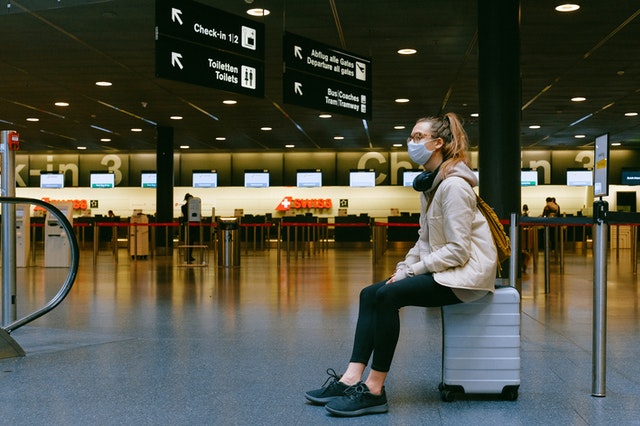As the world’s scientists work desperately to find a cure for COVID-19, and governments work overtime to manage the health and economic impacts, many of us are left wondering what could have been done after the outbreaks of SARS and MERS to stop COVID-19 in its tracks before it became a global pandemic. Where was the international prevention strategy?
The warning signs were already there for all to see. More than 17 years ago, SARS emerged to take the lives of around 800 people. Then in 2012, MERS appeared in the Arabian Peninsula, with a similar number of deaths occurring, with a fatality rate of more than one-third. Both are coronaviruses.
 After both outbreaks were quickly contained, the world went back to normal business. We became complacent. If just a fraction of the resources being applied around the world now in response to COVID-19 had been focused on research after SARS and MERS, we may have been in a very different position to the nightmare unfolding in some countries right now.
After both outbreaks were quickly contained, the world went back to normal business. We became complacent. If just a fraction of the resources being applied around the world now in response to COVID-19 had been focused on research after SARS and MERS, we may have been in a very different position to the nightmare unfolding in some countries right now.
Perhaps it is unfair to criticise governments around the world for not taking prevention more seriously, when in fact prevention is not something, we as individuals are good at either.
We are hard wired to recognise and react to immediate danger. This is an important protection mechanism, helping to keep us safe. However, this survival trait also means that we tend to ignore or pay less attention to threats that are longer term. This is one reason we have so many chronic health conditions that could have been avoided had we focused more on adopting a healthier lifestyle. Preventative health education underpins the Life Education program, with our educators reaching more than 700,000 Australian children every year, as well as delivering the program in a dozen or so countries around the world. Prevention can save countless lives and suffering.
It is human nature to pay less attention to what might or might not happen in the future. Investment in prevention often suffers at the expense of responding to the urgent and immediate.
Of course, if we are in danger of drowning, it is much better to call for help than ponder whether we should have taken swimming lessons. However, after we have been rescued from the water, we face a choice: either we refuse to go in the water – an avoidance approach, or we take lessons to become a better swimmer – a prevention approach.
As COVID-19 spreads around the world, we have an option to avoid, through physical distancing, self-isolation, quarantine and not touching our face. And we have an option to try to prevent, through washing our hands regularly. We need to do both, and this will certainly help to reduce suffering and loss of lives. As a health promotion charity, we urge everyone to heed government messages for your safety and the safety of those you love, and particularly for the sake of the elderly and frail in our community.
There is no economic solution to this, as much as governments pour money into the system. The solution to COVID-19 lies in medical science: either through a vaccine, an effective treatment, or preferably both.
In Australia, we have the benefit of one of the world’s best health systems but even this may be severely tested in the weeks and months ahead. Yet we are fortunate. In my previous role with World Vision, I saw first-hand the devastation of the AIDS epidemic on communities in countries like Uganda in the 1980s and early ‘90s – and I fear for developing countries right now. They are completely unprepared for this. Those living in poverty, lacking adequate health care and sanitation, many already suffering from poor health and disease – these are among the most vulnerable as COVID-19 inevitably spreads across the developing world. Who is going to protect them?
In our own backyard, the elderly, the lonely, the homeless, the sick, and those in poverty must also be protected as best we can. This includes both their physical health and their mental health.
At the same time, the restrictions now in place on public gatherings, and the need for physical distancing, as necessary as this is, will also be placing increasing pressure on many charities, including Life Education, both from the point of view of delivering services as well as raising funds through public events. Charities rely on fundraising to sustain their programs, which is why support for the not-for-profit sector over the coming months is going to be crucial – so that those charities can continue to provide important programs, not just during this crisis but in the years to come.
One thing is for sure, prevention has never been a more important word than it is right now – for individuals, for governments and for the entire world. Our health and wellbeing, and the health and wellbeing of those we care about, are what really matter – and whatever investment we can make in prevention is worth it. We need to learn from this.
HELP NOW: Donate to Life Education Queensland now to help them navigate the COVID-19 pandemic.